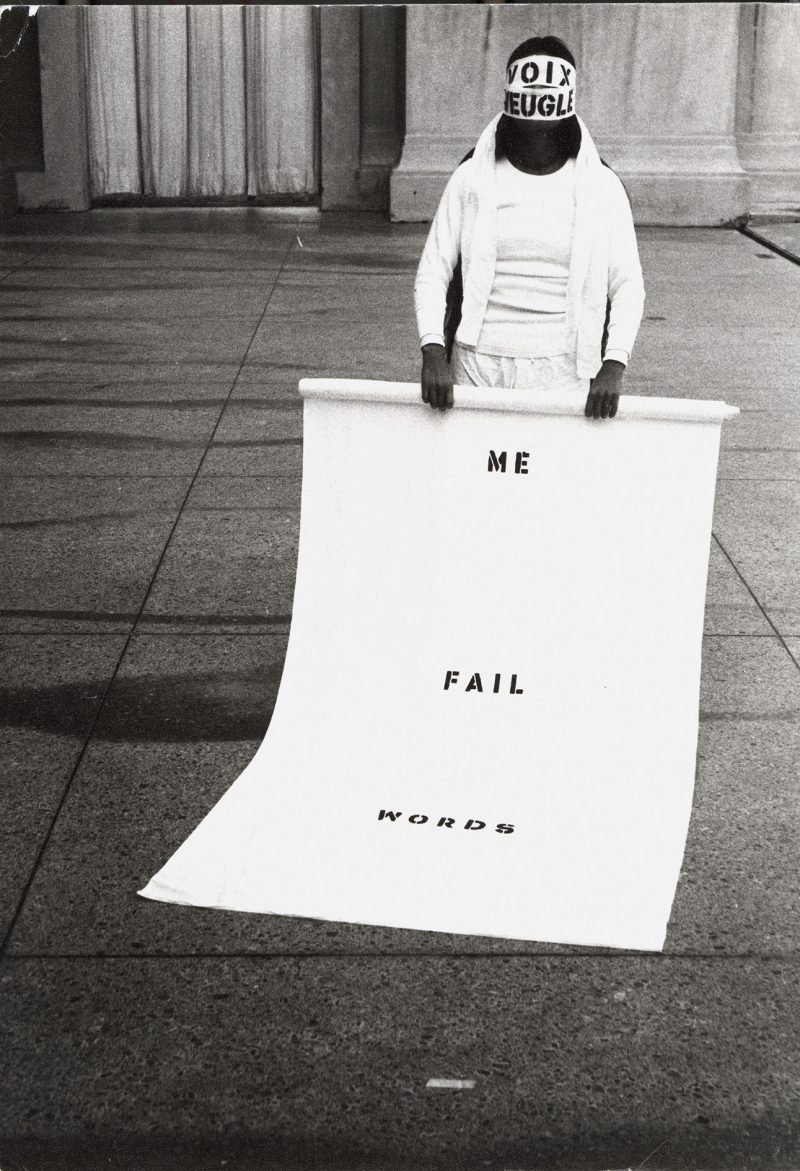No other cure none other than words in talking
Artists
- Theresa Hak Kyung Cha
- Evelyn Taocheng Wang
- Thuy-Han Nguyen-Chi
- Andrew Yong Hoon Lee
- Franziska Aigner
- Audrey Chen
- Lotus L. Kang
- Hanne Lippard
- Tanasgol Sabbagh
- Fabian Saul
- Hyunhye Seo
- Senthuran Varatharajah
- Alex Zhang Hungtai
- Ketuta Alexi-Meskhishvili
Curator
- Christina Lehnert
The exhibition No other cure none other than words in talking, curated by Christina Lehnert, presents historical and contemporary artists whose works are interlinked by the topics of language, memory, and the experience of being foreign.
The exhibition’s title is taken from Cha’s book Temps Morts. The first lines, which read “No other cure none other than words in talking,” is followed by lists of different forms of speaking and discourse, ranging from various instructions to the decision that ultimately leads to remaining silent.
The exhibition invites visitors to read, listen, and speak, transforming the institution into a place featuring the multivoiced narratives of these artists. The show opens a critical space that makes connections between artistic practices and experiences, between memories and periods, and between history and the present. Especially in periods in which communication is characterized by new terms that create atmospheres and form opinions but in which collective discussions no longer seem possible, the practices of these artists raise our awareness of the significance and importance of words when speaking with one another.
The show begins with the work of artist Theresa Hak Kyung Cha (Busan, Korea, 1951–1982 New York, USA). Cha is known for her book Dictée, which can be read both as a multilingual autobiographical collage about displacement and disparity and a transgenerational story. During her lifetime she created works in a wide range of media that explore the development of an artistic form of expression, her artistic and personal biography, and especially finding a language beyond one’s own native tongue. In addition to language, speaking, and storytelling, Cha’s works focus on remaining silent and the inability to speak, and are marked by her experiences as a Korean immigrant in the United States and the experience of foreign culture.
The films and installations by Thuy-Han Nguyen-Chi (b. 1988, Reutlingen) investigate migration and its long-term impact over generations, the feeling of being foreign, memory, and the future. Her works, which are narratives from the past with references to science fiction, examine personal stories characterized by political events such as war, migration, and the dangers involved. The loss of one’s homeland and the familiar is omnipresent in her works, crossing time in a nonlinear way and mixing historical events and personal reflections.
Evelyn Taocheng Wang (b. 1981, Chengdu, China) works in series and episodes. Wang, who studied Chinese painting in China and visual art in Europe, combines her own experience as a non-European artist with literature, fashion, art history, colonial history, and queer and feminist theory. Her stories are intertwined with her own biography—not only her life as an artist, but as an Asian woman living in Europe—along with the stereotypical expectations of East and Western cultures. Despite this, her pictures are much more than self-referential fiction; they put existing perceptions about gender, nationality, culture, and time up for discussion.
Raising one’s voice is a physical act; having the option to raise one’s voice or being prohibited from doing so make it into a political act. While the artists in this exhibition have their own way of speaking and telling stories, the sound installation that was staged by Thuy-Han Nguyen-Chi and composed by Andrew Yong Hoon Lee shows that this is not a self-evident process. Inspired by the book Dictée, the immersive installation unites nine voices.
Curated program
No other cure none other than words in talking
Brunch and artists talks
With Thuy-Han Nguyen-Chi, Andrew Yong Hoon Lee and Viron Erol Vert
The art of the Californian Bay Area in the 1970s
The artistic circles of Theresa Hak Kyung Cha and about her references to performance art's and concept art's pioneers such as Terry Fox and Tom Marioni










